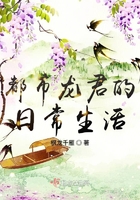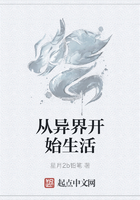Josephine fell into a state that almost defies description; her heart was full of deadly wounds, yet it seemed, by some mysterious, half-healing balm, to throb and ache, but bleed no more.Beams of strange, unreasonable complacency would shoot across her; the next moment reflection would come, she would droop her head, and sigh piteously.Then all would merge in a wild terror of detection.She seemed on the borders of a river of bliss, new, divine, and inexhaustible: and on the other bank mocking malignant fiends dared her to enter that heavenly stream.The past to her was full of regrets; the future full of terrors, and empty of hope.Yet she did not, could not succumb.Instead of the listlessness and languor of a few months back, she had now more energy than ever; at times it mounted to irritation.An activity possessed her: it broke out in many feminine ways.Among the rest she was seized with what we men call a cacoethes of the needle: "a raging desire" for work.Her fingers itched for work.She was at it all day.As devotees retire to pray, so she to stitch.On a wet day she would often slip into the kitchen, and ply the needle beside Jacintha: on a dry day she would hide in the old oak-tree, and sit like a mouse, and ply the tools of her craft, and make things of no mortal use to man or woman; and she tried little fringes of muslin upon her white hand, and held it up in front of her, and smiled, and then moaned.It was winter, and Rose used sometimes to bring her out a thick shawl, as she sat in the old oak-tree stitching, but Josephine nearly always declined it.SHE WAS NEARLY IMPERVIOUS TO COLD.
Then, her purse being better filled than formerly, she visited the poor more than ever, and above all the young couples; and took a warm interest in their household matters, and gave them muslin articles of her own ******, and sometimes sniffed the soup in a young housewife's pot, and took a fancy to it, and, if invited to taste it, paid her the compliment of eating a good plateful of it, and said it was much better soup than the chateau produced, and, what is stranger, thought so: and, whenever some peevish little brat set up a yell in its cradle and the father naturally enough shook his fist at the destroyer of his peace, Madame Raynal's lovely face filled with concern not for the sufferer but the pest, and she flew to it and rocked it and coaxed it and consoled it, till the young housewife smiled and stopped its mouth by other means.And, besides the five-franc pieces she gave the infants to hold, these visits of Madame Raynal were always followed by one from Jacintha with a basket of provisions on her stalwart arm, and honest Sir John Burgoyne peeping out at the corner.Kind and beneficent as she was, her temper deteriorated considerably, for it came down from angelic to human.Rose and Jacintha were struck with the change, assented to everything she said, and encouraged her in everything it pleased her caprice to do.Meantime the baroness lived on her son Raynal's letters (they came regularly twice a month).Rose too had a correspondence, a constant source of delight to her.Edouard Riviere was posted at a distance, and could not visit her; but their love advanced rapidly.Every day he wrote down for his Rose the acts of the day, and twice a week sent the budget to his sweetheart, and told her at the same time every feeling of his heart.She was less fortunate than he; she had to carry a heavy secret; but still she found plenty to tell him, and tender feelings too to vent on him in her own arch, shy, fitful way.Letters can enchain hearts; it was by letters that these two found themselves imperceptibly betrothed.Their union was looked forward to as certain, and not very distant.Rose was fairly in love.













